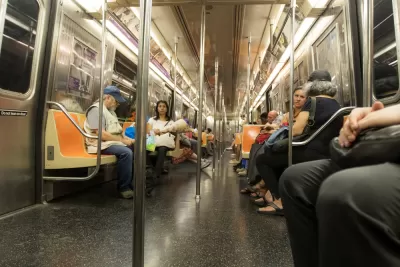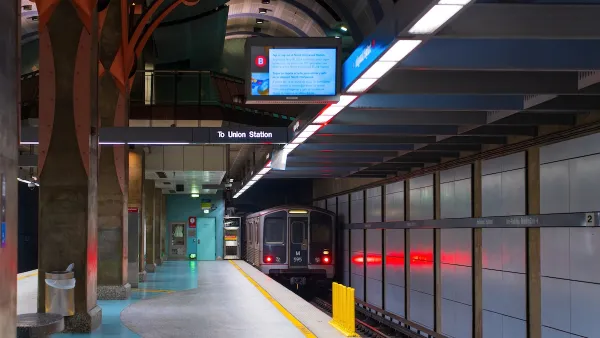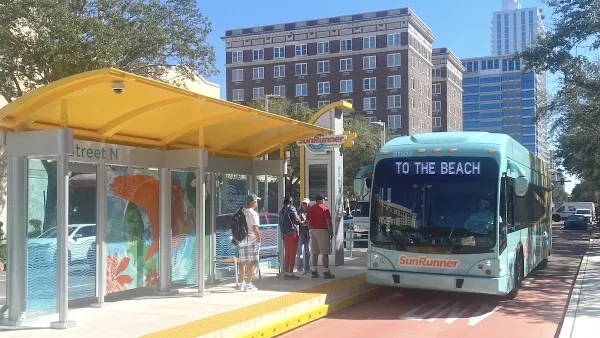While recent federal legislation allocates billions to transit projects, local leaders face difficult choices as they struggle to match federal funds while ridership remains below pre-pandemic numbers.

The federal Infrastructure Investment and Jobs Act (IIJA) will pump billions of dollars into transit projects across the nation, writes Thomas Day in Governing, but local governments will have to develop strategies to meet federal requirements as they reshape their systems around post-pandemic travel patterns.
“Difficult choices will need to be made now — think new tax increment financing districts, congestion pricing or repurposing of existing public funds — or IIJA grant dollars will be left on the table,” Day says. “Unlike the COVID-19 relief bills, which included funding to support operational expenses, much of the IIJA’s public transit funds must be spent on capital projects.” Accordingly, “For IIJA to revive and sustain public transit, local governments and transit agencies need to make an effective push to recover lost revenue, then act on a bold vision of post-COVID-19 cities.”
“Transit-oriented development, long a fascination among urban planners, may now provide a solution for mayors who have seen the lifeblood sucked out of downtowns as professional service workers continue to work from home,” posits Day. “By building housing closer to transit, protecting low-income residents and public housing, increasing urban density and providing easier access to downtown civic amenities, cities could strengthen the magnetic pull of urban centers even if work-from-home trends continue.” This could help draw riders back to public transit and counter the hollowing out of downtowns by introducing a wider variety of uses in downtown cores, as well as more convenient ways to access them.
FULL STORY: Federal Transit Billions Are Coming, but There’s a Catch

Maui's Vacation Rental Debate Turns Ugly
Verbal attacks, misinformation campaigns and fistfights plague a high-stakes debate to convert thousands of vacation rentals into long-term housing.

Planetizen Federal Action Tracker
A weekly monitor of how Trump’s orders and actions are impacting planners and planning in America.

In Urban Planning, AI Prompting Could be the New Design Thinking
Creativity has long been key to great urban design. What if we see AI as our new creative partner?

King County Supportive Housing Program Offers Hope for Unhoused Residents
The county is taking a ‘Housing First’ approach that prioritizes getting people into housing, then offering wraparound supportive services.

Researchers Use AI to Get Clearer Picture of US Housing
Analysts are using artificial intelligence to supercharge their research by allowing them to comb through data faster. Though these AI tools can be error prone, they save time and housing researchers are optimistic about the future.

Making Shared Micromobility More Inclusive
Cities and shared mobility system operators can do more to include people with disabilities in planning and operations, per a new report.
Urban Design for Planners 1: Software Tools
This six-course series explores essential urban design concepts using open source software and equips planners with the tools they need to participate fully in the urban design process.
Planning for Universal Design
Learn the tools for implementing Universal Design in planning regulations.
planning NEXT
Appalachian Highlands Housing Partners
Mpact (founded as Rail~Volution)
City of Camden Redevelopment Agency
City of Astoria
City of Portland
City of Laramie





























